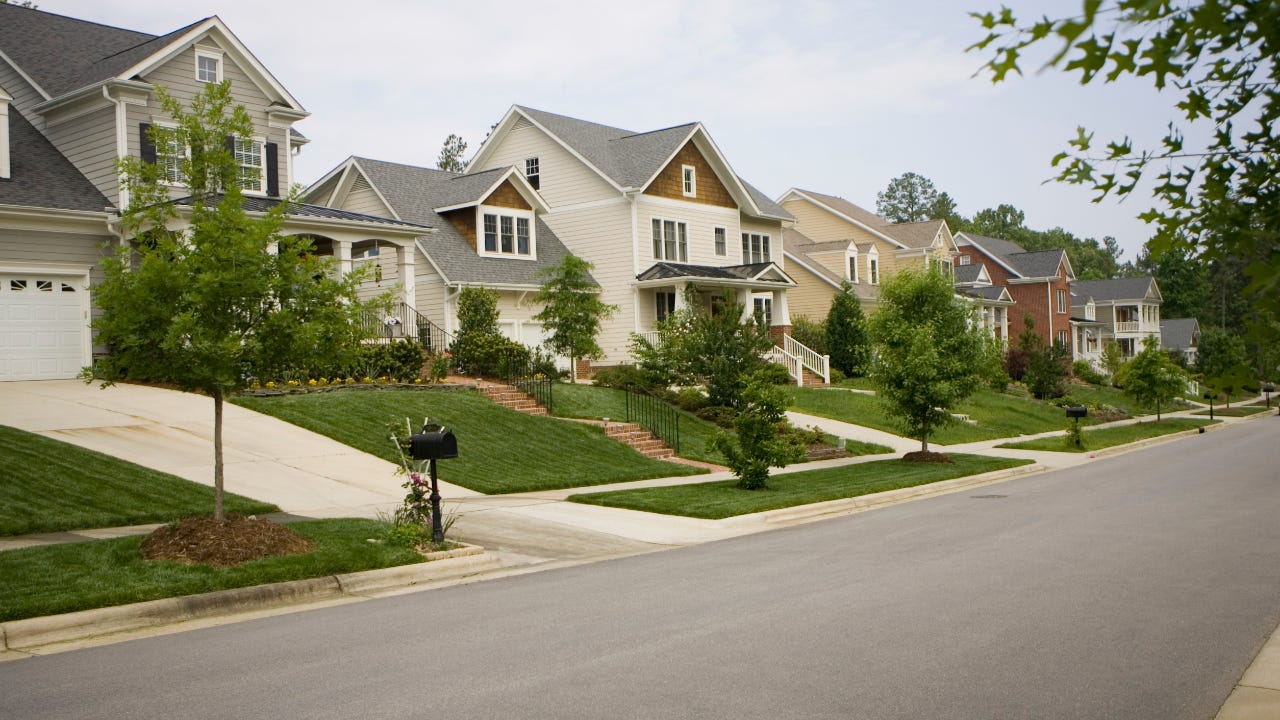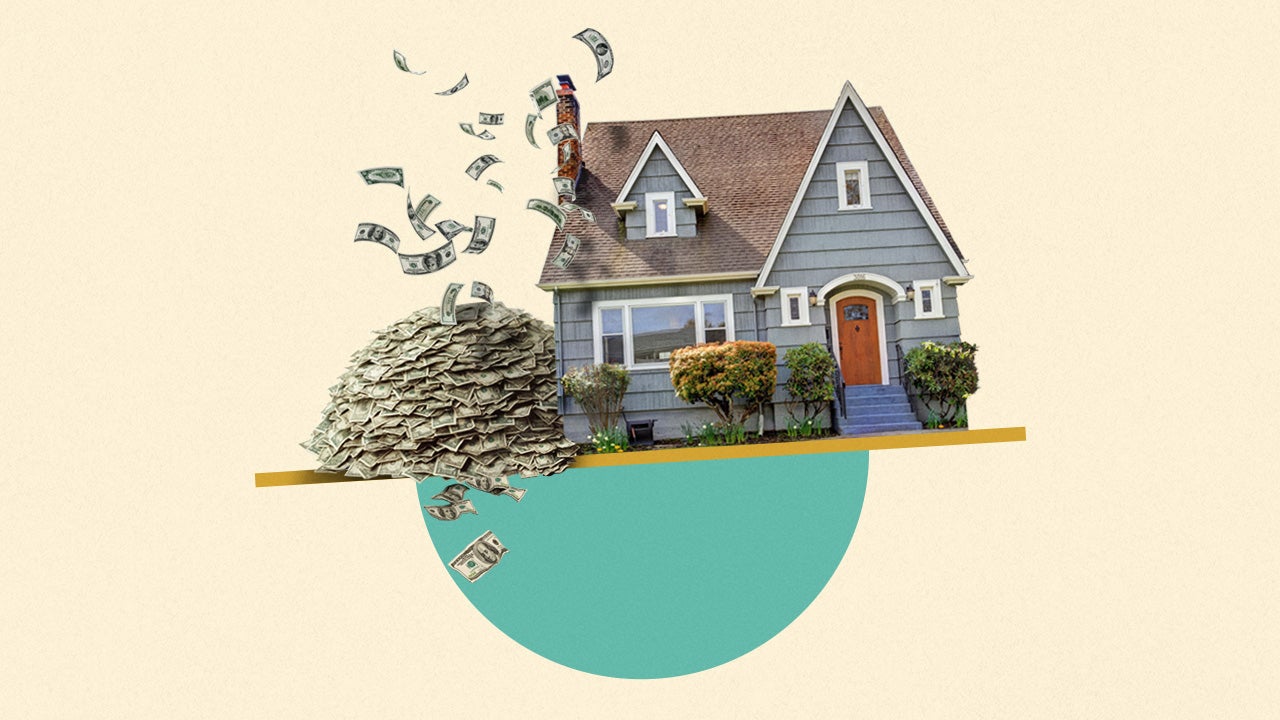What is an HOA, and how do they work?




Key takeaways
- A homeowners association, or HOA, is an organization that governs and maintains a housing community and sets rules for its residents.
- Residents in HOA communities pay fees to cover the cost of amenities and services provided, such as landscaping or a swimming pool.
- HOA rules are meant to keep the neighborhood a nice place to live, but many people find them overly restrictive.
The abbreviation HOA stands for homeowners association. Neighborhoods or other residential communities often have HOAs to oversee management and upkeep. These areas may consist of individual houses, townhouses, high-rises or condos, often within a planned community. The HOA may oversee management of the entire property for a high-rise condo building, or just common areas for, say, a neighborhood of townhouses.
If you are thinking about living in an HOA community, there will be fees to pay and rules to follow. Here’s everything you need to know about HOA life.
What is an HOA?
HOAs, or homeowners associations, exist in “common-interest” communities. In an HOA-run community, each property owner is required to pay monthly HOA fees that cover use and maintenance of the community’s common areas. These can include swimming pools, fitness centers and parking facilities, as well as communal lawn maintenance, snow clearing (where applicable) and landscaping.
There is usually a board of directors made up of elected homeowner volunteers. “In most cases, it’s a self-governing organization within a neighborhood or community that collects fees in order to maintain common spaces and enforce rules and regulations,” says Angie Hicks, co-founder of Angi.
How do HOAs work?
A homeowners association is more than just a set of rules and regulations. It serves as a collective body that oversees the management and maintenance of a neighborhood or multi-unit building.
The HOA board of directors is tasked with scheduling regular meetings, creating budgets, hiring vendors and, crucially, setting and enforcing the community’s rules and regulations. These rules are typically outlined in the Covenants, Conditions and Restrictions (often abbreviated to CC&Rs), which serves as the governing document for the association. Failure to follow the rules can have potentially severe consequences.
An HOA’s power to enforce rules
Enforcing the rules of an HOA community is a significant responsibility of the board, and while all HOAs have rules, some are more restrictive than others. For example, many will require you to get prior approval for home renovations, and some might prohibit you from renting out your home. Some HOAs go so far as to restrict the number of plants you can have in your front yard, the color you are allowed to paint your home’s exterior or the height of your mailbox.
The board might potentially impose penalties for repeated non-compliance or falling behind on HOA payments, including fines, suspended privileges and even possible legal action.
If a resident breaks the rules, the potential consequences can be serious. “If you break any of the rules, you could receive a lien on your home,” says Hicks. “Unpaid fees or fines can also result in an increase in property taxes, or in some cases even foreclosure.”
However, the extent of an HOA’s powers depends on state laws and the specific language in the CC&Rs. It’s crucial that these rules are enforced consistently and fairly to avoid any perception of bias. While HOAs have the power to enforce these rules within their community, they are also bound by local and federal laws, including the Fair Housing Act, to ensure fair and equitable treatment of all residents.
How much are HOA fees, and what do they cover?
HOA fees can range from a couple hundred dollars to $2,500 or more per year. The more your HOA does for you, the more it is likely to cost — neighborhoods with extensive amenities or luxury facilities usually charge considerably more than basic ones.
The obligations of an association, which its fees will cover, can include:
- Landscaping
- Maintenance (including pest control and garbage pickup)
- Parking
- Shared utilities (for example, in common areas)
- Safety and security
HOA fees are crucial for maintaining shared areas within the community, and failure to make timely payments can significantly impact the HOA’s finances.
From time to time, homeowners in an HOA may also need to pay special assessments. These charges are common when a storm, natural disaster or other unanticipated problem hits and the community requires unbudgeted repairs beyond what its reserve funds can cover. In this case, the HOA has the power to levy a special one-time fee to cover the costs.
Pros and cons of HOA life
Some homeowners love living in an HOA community. Others may find the rules to be too restrictive and cumbersome.

Pros
- Your neighborhood will be neat and well maintained, without you putting in your own time or effort. Your property value will likely benefit from the rules governing the maintenance and appearance of homes, too.
- You might have access to exclusive amenities, like a swimming pool, playground or gym. You may also have opportunities to socialize with your neighbors at HOA-sponsored events.
- The board can mediate disputes between neighbors for property-related issues that violate the rules (such as barking dogs or fence disputes).

Cons
- HOAs typically have a lot of power over how you can maintain and live in your home. You might be limited to certain design schemes or paint colors, or even the number of and type of pets you are permitted to have.
- HOA fees can stretch your monthly housing budget, especially if home prices are already steep in your area, and prices can increase at the board’s discretion.
- Some HOAs can be aggressive about sending violation notices for the slightest infractions.
Questions to ask before buying in an HOA community
If you’re considering purchasing a home in an HOA community, make sure you know what you’re getting into. It’s crucial to understand the workings of the HOA and what it will mean for you as a homeowner, so you don’t run into any unpleasant surprises once you move in. Working with a knowledgeable local real estate agent who’s familiar with the HOA can be a big help.
Here are some common questions to ask before making an offer on a home run by an HOA.
What amenities does it offer?
HOA amenities can be great, but remember, the more and fancier the perks, the higher your fees are likely to be. To fully understand what you’re paying for, find out exactly what’s included in your monthly fee.
For example, does the money cover trash pickup and landscaping of shared areas? Twenty-four hour security? A pool or fitness center? What rules or restrictions are in place for using those amenities? It’s also good to ask about whether the HOA has any new plans in the works that may impact the amount you’ll pay in the future.
What are the rules and bylaws?
Your HOA will govern your life in your new home, so before you make an offer, take the time to read through the CC&Rs to ensure you’re comfortable with them.
“When you’re buying a home in an HOA, it’s really important to truly understand all of the rules, regulations and fees,” Hicks says. “This is where you want to read the fine print. Understand how long you can leave your trash cans out, and if it will result in a fine if you don’t take them in. If you want to remodel, understand what the approvals will look like and how challenging it might be.”
How is the HOA run?
An efficiently run HOA can significantly enhance your living experience. If the board has an upcoming meeting, see if you are permitted to attend to get a feel for things. How does the HOA handle disputes between members? Does the board mediate these issues, or are they handled through a third party?
You may also want to do some internet sleuthing: Check online community groups to see if people have posted about their experience with the HOA. Some also have online reviews on Google or Yelp.
What is the HOA’s financial status?
Knowing the financial status of an HOA can tell you a lot, so ask for a copy of its financial statement. If an HOA isn’t managing funds well, be cautious about purchasing a home there — mismanaged funds can lead to higher dues and additional assessments, and can indicate mismanagement on other levels as well.
Ask about the reserve fund, too. This acts as a form of savings account, where the HOA sets aside a portion of the collected fees for future repairs and replacements of major community assets. Look to see if the HOA has a sufficient reserve fund and insurance to make repairs if, say, a hurricane blows off the clubhouse roof or flooding damages the landscaping.
FAQs
Why we ask for feedback Your feedback helps us improve our content and services. It takes less than a minute to complete.
Your responses are anonymous and will only be used for improving our website.
You may also like

What is a physician mortgage loan?

What is a second mortgage, and how does it work?

What is HOA insurance and what does it cover?

